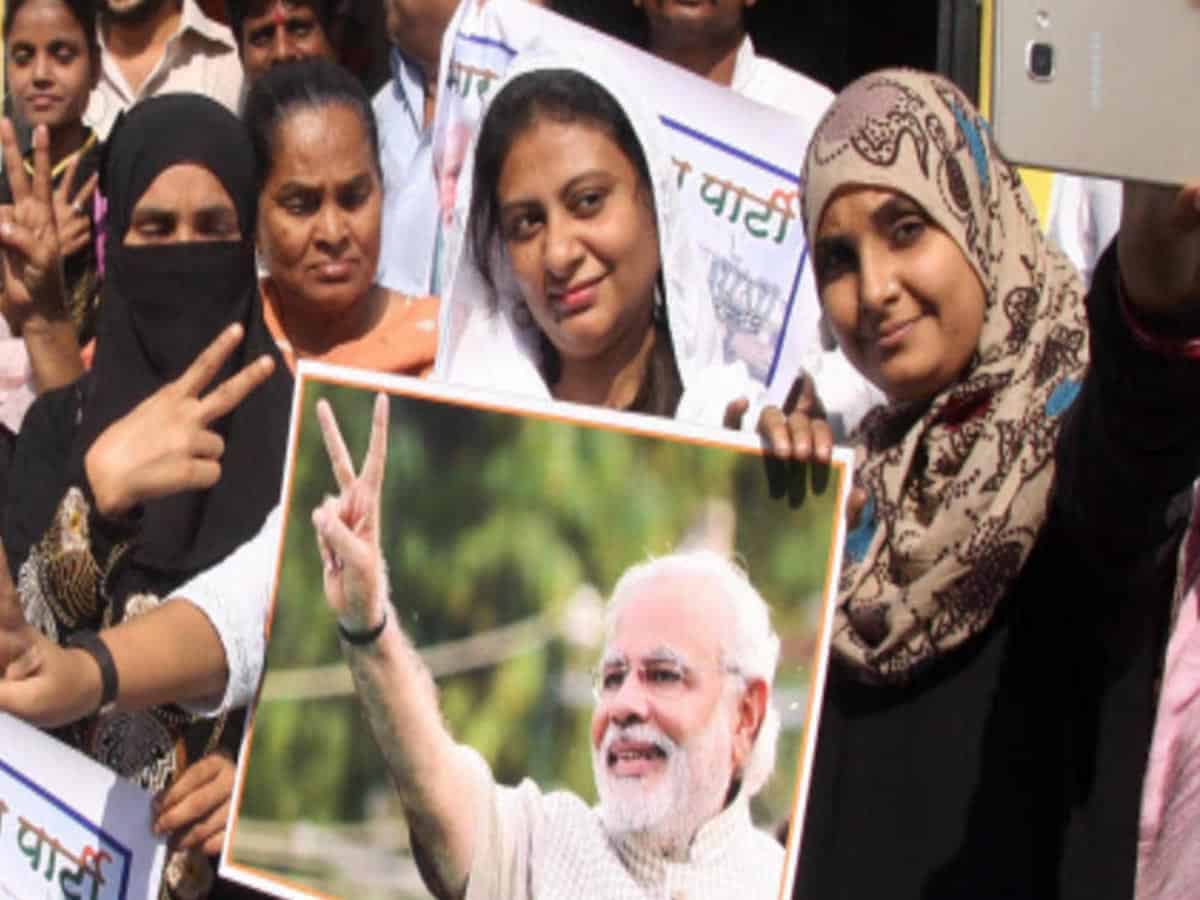New Delhi: Polygamy is not prevalent among Muslims in North East Delhi and a majority of women of the community support the Supreme Court’s judgement on triple talaq, according to a Delhi Minorities Commission (DMC) report.
The study covers 600 women from 30 localities of North East Delhi which has the highest Muslim population in the national capital. It noted the prevalence of monogamy and the absence of divorce in the region.
When asked whether they were aware of the apex court’s decision on the issue of triple talaq, 93 per cent of them answered ‘yes’, the report stated.
“In their opinion, a majority of women who were aware of the court decision welcomed it, with some of them saying that with this decision Muslim women have got a new lease of life,” the report stated.
However, there was a small percentage of women who said that “whatever be the court’s decision, whatever is followed in their culture will continue”, it said.
The Supreme Court in a 2017 verdict struck down instant divorce through triple talaq as “unconstitutional” practice.
DMC chairman Zafarul Islam Khan, releasing the report on Thursday, said that triple talaq was “negligible” and only some “ignorant” men did it.
As part of the study, Development Oriented Operations Research and Surveys (DOORS) held interviews in January and February with the respondents, of whom 66.3 per cent were married.
All the married women forming the sample were in a monogamous marriage, stated the report.
“This shows that the perception that polygamy is prevalent among Muslims is totally wrong. All the women spoken to by the field workers were of the opinion that polygamous marriage is bad.”
The fieldworkers didn’t find a single case of polygamous marriage or a case of divorce in the sample of 600 women, it said.
As per the 2011 census, the North East Delhi district had the highest population density of 37,346 persons per sq km, as well as the highest concentration of Muslim population at 29.34 per cent in the NCT.
The report stated that 73.3 per cent of respondents were of the opinion that the socio-economic condition of Muslim women has improved in their locality in the past few years.
“They said that now all girls go to school and have better education than in previous times and their thinking has also changed. They also said that previously they were not allowed to go outside their houses but now things have changed for the better,” the study stated.
However, 26.7 per cent of the respondents held the view that nothing had changed and that the atmosphere has changed from “bad to worse” with so many incidents of riots and rapes and they expressed “fear” for their security, life and liberty, stated the report.
North East Delhi has many poorly developed and congested areas, with the majority of its residents belonging to the low-income group.

